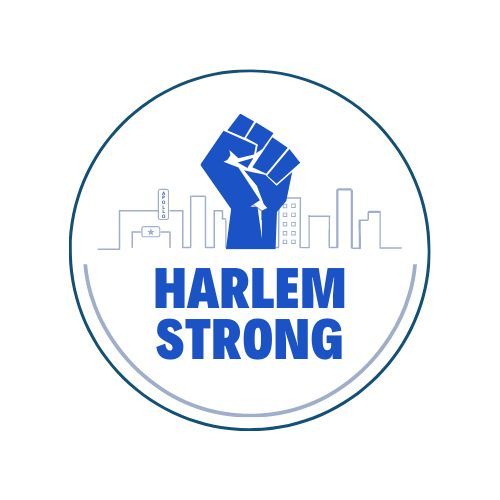In response to mental health disparities exacerbated by the COVID-19 pandemic, the CUNY SPH Center for Innovation in Mental Health (CIMH) and Harlem Health Initiative have collaborated with the Harlem Congregations for Community Improvement Inc. (HCCI) and Healthfirst Managed Care to launch the Harlem Strong Program. This community-engaged initiative will integrate mental health care into primary care and low-income housing developments, addressing mental health needs in non-medical settings where such services are often inaccessible.
“The Harlem Strong Program is among the first to expand the collaborative care model, originally developed for primary care to be implemented in low-income housing, an underutilized gateway for mental health task-sharing,” says Associate Professor Victoria K. Ngo, principal investigator on the project. “This study offers a unique opportunity to evaluate the effectiveness of embedding mental health services into community-based gateways that remains largely untapped for such interventions.”
While mental health task-sharing in primary care is not innovative, this study combines community engagement, intervention mapping, system science, and community-based participatory research, with a multisector collaborative to expand the reach of mental health integration beyond primary care settings. This multisector collaborative will support connections to mental health support across a range of settings, increasing linkages across the system, and facilitating a “no wrong door” approach to mental health access. In partnership with over 80 organizations in the coalition, Harlem Strong aims to address the syndemic needs of mental health structural and social determinants, and support community strategies for mental health integration that can be adopted and sustained community wide.
“The Harlem Strong Program is instrumental to providing assessments and referrals by community health workers, and navigators trained by the clinical professionals associated with CUNY,” says Dr. Malcolm A. Punter, president and CEO of HCCI. “HCCI’s property and case managers have been trained to identify and refer low income and senior residents to mental health professionals in the Harlem Strong coalition. HCCI is proud to be a part of the formation of Harlem Strong.”
The Harlem Strong program, backed by a multisector coalition, is designed as a stepped wedge clustered randomized controlled trial. This innovative trial will evaluate the effectiveness of mental health task-sharing in low-income housing and primary care settings, with a focus on improving access to mental health services for underserved populations, especially minoritized individuals.
The program will roll out across 20 sites, involving 700 consumers and 100 providers. Participating sites will be randomly assigned to either Education and Resources (E&R): This implementation condition offers online training and resources to develop basic mental health task-sharing skills or Multisectoral Community Collaborative Care (MCC): In addition to E&R, this condition provides community-responsive implementation supports and participation in a multisectoral coalition. Following two years of implementation of MCC, a community identified technology solution will be added to further support mental health service implementation.
“The Harlem Strong Program represents a significant step forward in bringing equitable mental health care to communities that have historically been underserved,” says Thinh Vu, corresponding author and CUNY SPH PhD candidate. “By involving multiple sectors and leveraging technology, we aim to create a sustainable model that can be replicated in other communities.”
The primary goal of the study is to assess the effectiveness of these strategies in addressing mental health issues such as depression and anxiety, while also evaluating the reach and implementation of the programs. Secondary outcomes will examine consumer health functioning, social risks, and provider adoption of mental health practices.
The study protocol, published in BMC Public Health, highlights CIMH’s commitment to advancing mental health research and addressing the global mental health crisis. It provides critical insights into the potential synergies between community engagement, quality improvement strategies, and implementation science, especially in low-resource settings. The study’s findings are expected to demonstrate the feasibility of integrating mental health care into accessible, non-medical community settings like low-income housing. If successful, the Harlem Strong Program could serve as a model for addressing mental health disparities on a broader scale, ensuring that mental health services reach those who need them most.
About CIMH
The Center for Innovation in Mental Health (CIMH) is an academic training and research center that promotes the reach and adoption of effective mental health interventions through research, evaluation, training, and policy. CIMH engages in local and global efforts to advance mental health services and research to improve access to and quality of mental health care. Based at the City University of New York’s Graduate School of Public Health and Health Policy, the Center builds on a wealth of scholarly and practical expertise within the university, guidance from advisory board members, and partnerships with collaborators across communities.
Ngo VK, Vu TT, Levine D, Punter MA, Beane SJ, Weiss MR, Wyka K, Florez-Arango JF, Zhou X. A multisector community-engaged collaborative for mental health integration in primary care and housing developments: Protocol for a stepped-wedge randomized controlled trial (the Harlem Strong Program). BMC Public Health. 2024 Sep 19;24(1):2554. doi: 10.1186/s12889-024-20026-6. PMID: 39300414; PMCID: PMC11414045.




